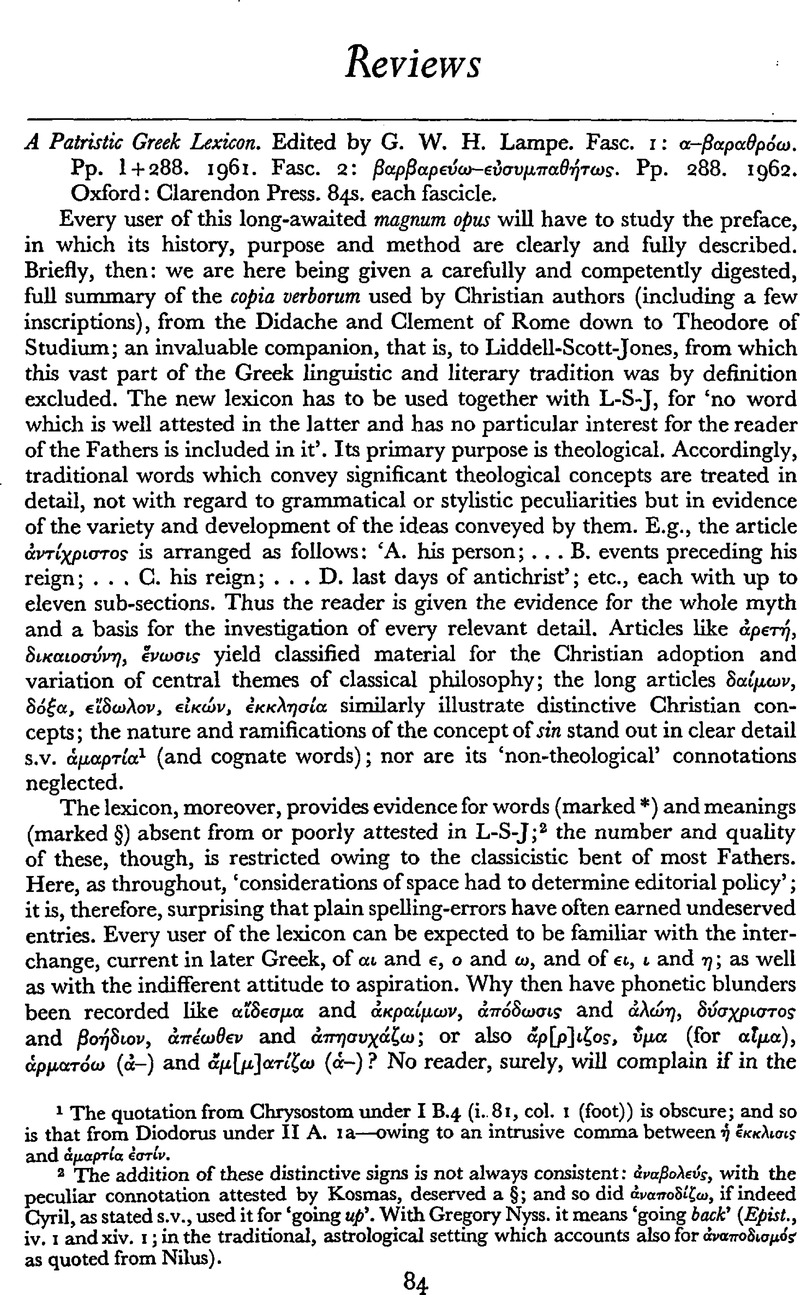Published online by Cambridge University Press: 25 March 2011

page 84 note 1 The quotation from Chrysostom under I B.4 (i. 81, col. 1 (foot)) is obscure; and so is that from Diodorus under II A. 1a—owing to an intrusive comma between ἔκκλισις and μαρτία στίν.
page 84 note 2 The addition of these distinctive signs is not always consistent: ναβολεύς, with the peculiar connotation attested by Kosmas, deserved a § and so did ναποδίςω, if indeed Cyril, as stated s.v., used it for ‘going up’. With Gregory Nyss. It means ‘going back’ (Epist., iv. 1 and xiv. 1; in the traditional, astrological setting which accounts also for ναποδισμός as quoted from Nilus).
page 85 note 1 Some observations on this aspect may be found in my review in the forthcoming issue of the Journal of Hellenic Studies.
page 85 note 2 E.g., the Catenae on Ecclus. and Cant. (Karo-Lietzmann, 312 and 315) bear the title ξηγητικν κλογν πιτομή.
page 85 note 3 The original text of 1 Cor. x. 11, as reconstructed there, should read τατα συνέβαινεν κείνοις (not … αὐτοῖς).
page 85 note 4 E.g., s.v. δόγμα the only quotation illustrating (precariously) the meaning ‘opinion’ (ii. 377), is actually a verbatim quotation from Epictetus (Ench. 5); s.v. αὐθεντία C.2 (i. 263) μάθῃ should be μάθοι (apparently the old edition of Greg. Nyss. has not here been corrected from Jaeger-Pasquali); s.v. ποσκιρόω) there survives the misprint ϕυχάς.